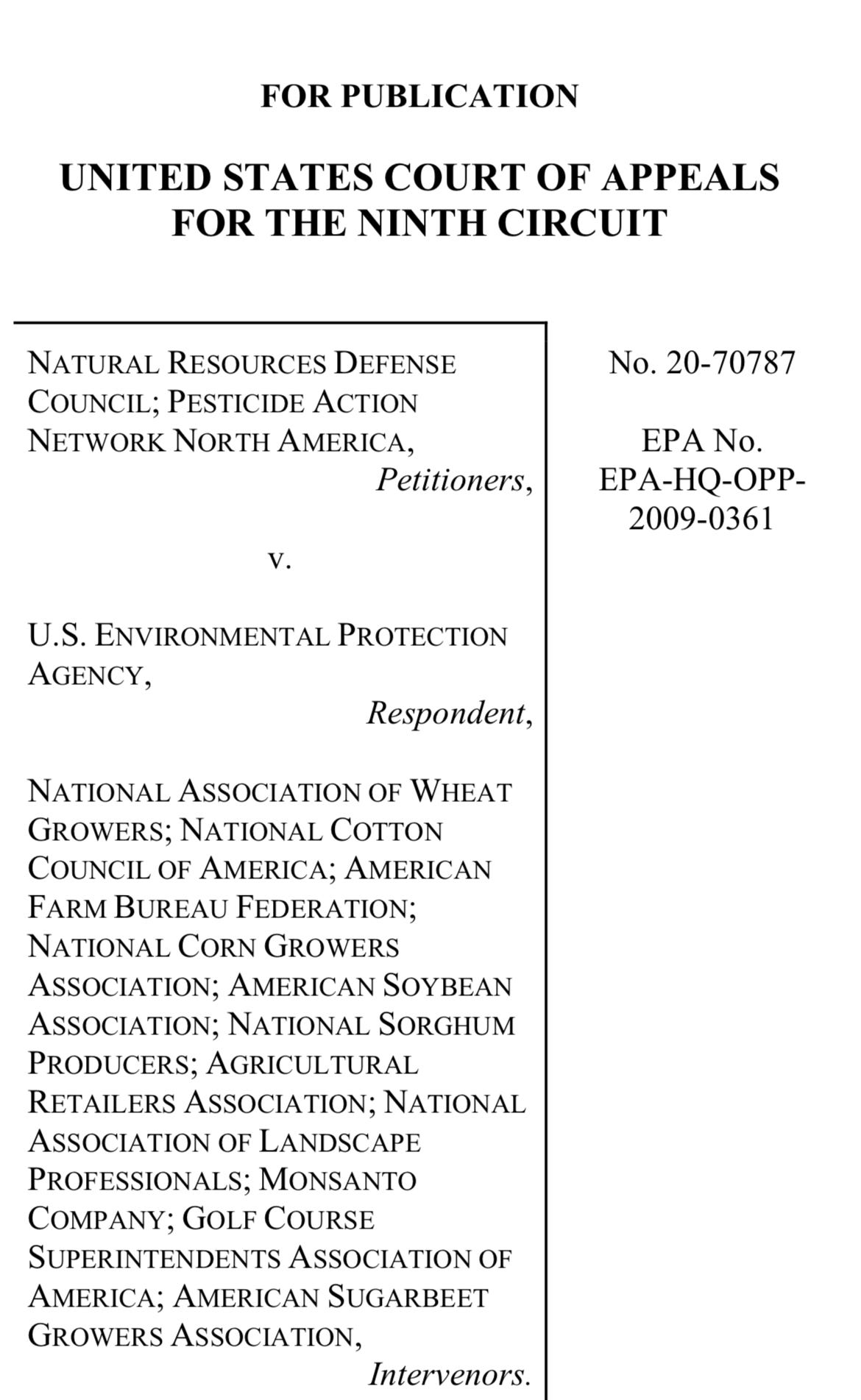9th Circuit smacks EPA down on glyphosate
Court cites EPA's "inconsistent reasoning" and says agency failed to follow guidelines
The U.S. Environmental Protection Agency (EPA) failed to follow established guidelines for determining cancer risk, ignored important studies, and discounted expert advice from a scientific advisory panel in officially declaring that the weed killer glyphosate was “not likely to be carcinogenic,” a federal court said in an order issued Friday.
The 9th U.S Circuit Court of Appeals said the agency’s 2020 assessment of glyphosate, the active ingredient in Roundup, was flawed in many ways, applying “inconsistent reasoning” in finding that the chemical does not pose “any reasonable risk to man or the environment.”
The court vacated the human health portion of the EPA’s glyphosate assessment and said the agency needed to apply “further consideration” to evidence. The 9th Circuit also said that the EPA was in violation of the Endangered Species Act in its assessment of glyphosate.
The decision comes at a critical time for Monsanto owner Bayer AG. Bayer is seeking to put an end to thousands of lawsuits filed by U.S. Roundup users who developed non-Hodgkin lymphoma and allege their exposure to the weed killer is to blame for their cancers.
Bayer denies there is any cancer connection between glyphosate and Roundup, and has repeatedly cited the EPA’s assurances of glyphosate safety as a key part of its defense. Bayer maintains that the backing of the EPA and similar support from other regulators in other countries is more valid than the 2015 assessment by the World Health Organization’s International Agency for Research on Cancer (IARC), which found that glyphosate was “probably” carcinogenic to humans.
That finding by IARC was based on a review of years of independent, peer-reviewed, published scientific studies, while the reviews by the EPA and other regulators focused more heavily on unpublished and non peer-reviewed studies submitted to regulators by Monsanto and other companies involved in making and selling glyphosate.
The EPA’s disregard for the established evidence of a cancer risk, seen in human and animal studies, has long frustrated human health advocates.
Internal Monsanto documents, obtained through Roundup litigation discovery and through Freedom of Information Act requests have demonstrated multiple strategies deployed by Monsanto to manipulate scientific literature and regulators, including the EPA.
Moreover, the internal corporate documents show Monsanto has long been aware of research showing a connection between the weed killer and cancer, but has sought to bury such research and/or attack and censor scientists who insist there is evidence of a cancer risk.
The ruling Friday came in response to legal challenges brought by two groups of petitioners, one led by the Center for Food Safety representing the Rural Coalition and the other led by Natural Resources Defense Council.
Though the EPA was the respondent in the case, Monsanto and a slew of large agricultural groups weighed in as “intervenors” to support the EPA in the case.





Thanks for better news
If the 9th Circuit Court vacated the current EPA glyphosate registration as not meeting human and environmental federal law health risk assessment, and the EPA has refused to comply with the Court's October 2022 deadline for reassessment, does the current glyphosate registration set a legal precedent to waiver pesticide toxicity testing?